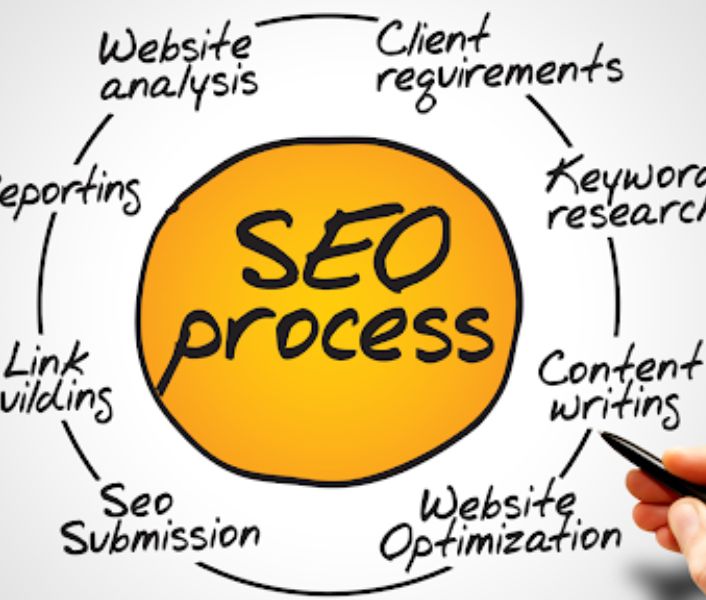Are you looking to boost your website’s SEO rankings? Understanding what makes pages rank in Google is essential to improving your SEO and increasing your website’s visibility and ranking. With the right knowledge and tactics, you can make sure your page appears in the search engine results pages (SERPs). This comprehensive guide will provide a detailed overview of the factors that contribute to a page’s ranking in Google, so you can better understand and optimize your website for better search engine visibility and higher rankings. We’ll cover everything from using keywords to creating backlinks, so you can rank higher and reach more potential customers.
What are the key factors that make pages rank in Google?
The competition for a page’s first few spots in Google’s SERPs is fierce. The more pages that compete for these spots, the more likely it is that your page is going to be one of the last ones to appear. This means that if you are able to improve your page’s ranking, you can stand out from the crowd and increase your visitors and conversions. Of course, it’s not as simple as equating better search engine rankings with more visitors. But, by improving your page’s ranking, you can translate that into better rankings on the search engine results pages (SERPs). This will make your page appear in the SERPs and be more visible to potential customers.
How to use keywords to optimize your content for search engines
Before we talk about how to use keywords to optimize your content, it’s important to understand how keywords work in SEO. Keywords are the words you’re targeting on your page. When someone searches for a product or service on Google, they usually begin with one of the words on the page. In the context of your content, these words become your page’s keywords. When you’re creating your content, you want to target your page’s keywords. If you do this, you’ll make your page more visible to potential customers and make it more likely to appear in the SERPs. When you’re creating your content, you want to target your page’s keywords. If you do this, you’ll make your page more visible to potential customers and make it more likely to appear in the SERPs.
The importance of backlinks in SEO
A backlink is a link from another website to yours. It’s important for your page to have backlinks, but it’s even more important for you to make sure those backlinks are coming from high-quality, authoritative sources. As we talked about in the section above on keywords, you want to target your page’s keywords when creating your content. Target the keywords that are related to your page’s topic and are important to the audience that will see your page. This will increase the chances that someone links to your page, which will make your page’s rank higher in the SERPs.
Setting up an effective internal linking structure
Internal linking is a way of creating cross-links between your pages. Google will use these links to determine how much importance to give each page. This is important because the more it has internal links, the more likely it is to appear in the SERPs and rank better. Internal links are especially important in SEO when it comes to your breadcrumb navigation links. If you have a breadcrumb navigation at the top of your page, you’ll want to make sure the links lead to the relevant pages. You don’t want them to link to your homepage. You want them to link to the pages most relevant to your visitors so they can easily get back to their purchase.
Optimizing page titles and meta tags
Your page’s title is what shows up in the top spot in Google’s SERPs and is what people are likely to click on. It’s also what’s used in Google’s algorithm to decide what your page is about. A page’s title should be an accurate representation of the content found on the page. For keywords, you want to make sure you target your page’s most important keywords. The meta tags you use for your page’s meta tags are likely to show up in the Google algorithm and thus contribute to your page’s ranking.
Creating meaningful and SEO-friendly content
If you want Google to show your pages in its search engine results pages (SERPs), you’re going to need to create desirable content. You can do this by focusing on topics that are relevant to your audience and creating content that is as fresh as possible. You also want to make sure to create content that is as SEO-friendly as possible. This includes keyword-rich content, site speed, internal linking, backlinks and mobile-friendliness.
Why is it important to have a mobile-friendly website?
Mobile traffic has grown at an exponential rate in the last few years, reaching a majority of daily internet usage by 2017. It’s important for businesses to be mobile-friendly, as it increases the number of people who are able to see your page and make a purchase from your website. An optimized website will rank better in Google, which means more traffic to your site and a higher chance of being seen. It’s important to remember that the more users who visit your site from Google, the more likely you’ll be to see those visitors again and convert them into paying customers.
Strategies to use social media to drive traffic to your website
If you want to get more people visiting Google pages, you should definitely consider boosting your social media presence. Having a social media profile on each of these platforms will help you boost your presence and gain more followers. You can write captivating content in your posts, share helpful and engaging links, and have conversations with your followers.
Conclusion
With all the factors that contribute to a page’s ranking in Google, it’s important to remember that they aren’t the only factors that contribute to a page’s ranking. The most important factor, of course, is the quality of the content on your page and the relevance of your content to the topic at hand. Having knowledgeable and interesting content that answers your visitors’ questions will help your page rank higher, making it more likely to be seen. Now that you know what contributes to a page’s SEO and how to optimize your page for better rankings, it’s time to put your new knowledge into action and boost your page’s SEO.




